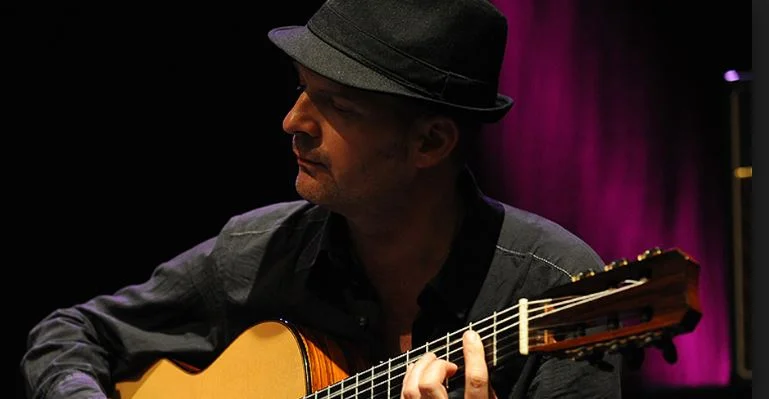For his third album as a leader for ECM, Where The River Goes, Austrian guitarist Wolfgang Muthspiel reconvened most of the personnel from Rising Grace, his second album for the label (Eric Harland replaces Brian Blade on drums). The quintet met up in February of this year at the same picturesque studio in the Alpes-de-Hautes-Provence region of southern France where they’d recorded the earlier release, in many ways continuing the creative discussion that started then.
On this album, Muthspiel again creates a space for his ensemble’s sonic musings, each player expounding on the guitarist’s musical assertions—his clean chordal structures, his descents into dissonance, his satisfying resolutions. Their discourse is one of understated beauty, as much about quiet as it is about sound.
Muthspiel wrote all but two of the eight compositions on the disk: a representative slice would include the title cut, which unfolds from a solitary guitar line into a rapturous, full-band manifesto (in addition to Muthspiel and Harland, Ambrose Akinmusire on trumpet, Brad Mehldau on piano, and Larry Grenadier on bass); “For Django,” a delicious tangle of melodic turns and intrepid solos; and “Descendants,” with its simple diatonic riffs serving as jumping-off points for the ensemble’s wide-ranging improvisations.
The two non-Muthspiel tunes include the brisk and unflagging “Blueshead,” Mehldau’s contribution to the project, and the impressionistic “Clearing,” a spontaneous composition credited to the entire ensemble. These two tunes perhaps represent the album’s extremes, with the Mehldau tune making full use of the group’s keen listening ability and dexterity with the straight-ahead, and the free improv delving into the deep and personal in each of the players.
Of special note is the one solo guitar piece on the album: “Buenos Aires,” a brief air that vacillates between statements of longing and hopeful declarations. At once masterful and surprising.
(Reprinted from the November 2018 issue of Downbeat magazine.)
